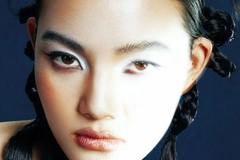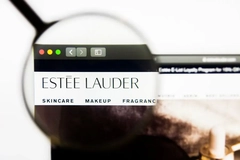France firms up new law restricting “bulk sale” cosmetic items and feminine hygiene products

05 Sep 2023 --- French authorities have introduced a decree that tightens regulation surrounding the bulk sales of cosmetics, household items and feminine hygiene products, among other commercial products. The enactment is deemed essential for consumer safety and environmental sustainability.
With this announcement, the legislative and regulatory communications arm of the French government Légifrance outlined a list of products for which sale in bulk is prohibited for public health reasons.
The definition of “bulk sale” in this context is the offering of commercial products sold to the consumer without packaging. With this allowance, consumers can set their desired purchase quantities, delivered inside reusable containers.

France is the home market for several cosmetics brands and companies worldwide. L’Oréal and its popular brands, Lancôme, La Roche-Posay and Vichy, saturate the cosmetics market. Other notable French brands include L’Occitane en Provence, Caudalie, Nuxe, Avène, Guerlain, Clarins, Yves Rocher and LVMH.
The new decree accounts for cosmetics products for which a “challenge test” for preservation and microbiological checks on the finished product are necessary. This is pursuant to the European Commission’s implementing decision of 25 November 2013 concerning the guidelines for the application of Annex I to Regulation (EC) No 1223/2009 of the European Parliament and Council on cosmetic products.
Scope extending beyond cosmetics
The scope of this decree extends beyond just cosmetics. It encompasses various other products, including toilet paper, kitchen paper towels, paper napkins, paper handkerchiefs, absorbent cotton and other single-use cotton or vegetable fiber articles intended for personal hygiene or cleaning.
 The new decree accounts for cosmetics products for which a “challenge test” for preservation and microbiological checks on the finished product are necessary.Tampons and sanitary napkins are among the single-use intimate hygiene protection products listed in the new decree. Single-use cotton swabs are also included within the decree’s scope.
The new decree accounts for cosmetics products for which a “challenge test” for preservation and microbiological checks on the finished product are necessary.Tampons and sanitary napkins are among the single-use intimate hygiene protection products listed in the new decree. Single-use cotton swabs are also included within the decree’s scope.
French leadership anticipates that cutting down on the bulk sale of these products will contribute toward France’s packaging reduction targets. The nation aims to phase-out single-use plastic packaging by 2040.
Aside from cosmetics and hygiene products, the decree covers single-use baby diapers, single-use materials for contact with foodstuffs and perishable foodstuffs that present a danger to human health after a short period.
Employing dispensing devices and “assisted service”
Article L. 120-1 of the new decree introduces the concept of “assisted service,” which indicates that cosmetic products must be packaged and immediately delivered to consumers by trained operators at the point of sale.
When a product is deemed likely to pose a risk to the consumer, the assisted service operator must ensure sufficient protection against these risks.
The decree also mandates the use of “suitable dispensing devices.” These devices will be selected based on the product’s characteristics and put in place to ensure the integrity, safety and hygiene of the product, as well as the security of the sales area.
The new French rules do not undermine existing rules that professionals must follow regarding the information they provide to consumers. This includes details about the essential characteristics of products, precautions for consumption or use, dangerousness and potential risks.
The decree also underscores the importance of maintaining transparent and responsible product marketing.
Industry developments
In other recent announcements, the French Ministry for Ecological Transition recently announced it is seeking public opinions in support of its Regulatory Management Option Analysis project to determine whether the UV filter octocrylene – commonly used in commercial sunscreens – requires additional measures in light of possible environmental risks.
Last month, France released a joint statement with China on heightening mutual benefits ahead of the two nations’ 60th anniversary of diplomacy. France is considered a widely untapped market for China, because Chinese local brands have “lagged behind European, American, Japanese and Korean brands for many years,” while the Chinese beauty market is being dominated by brands from these countries.
Over the summer, the Directorate General for Competition, Consumer Affairs and Fraud Prevention of the Government of France detected a 31% rate of “anomalies” in personal care products reserved for professional hair, nail or eyebrow use, as well as in the labeling of allergens, nanomaterials and prohibited substances.
By Benjamin Ferrer













